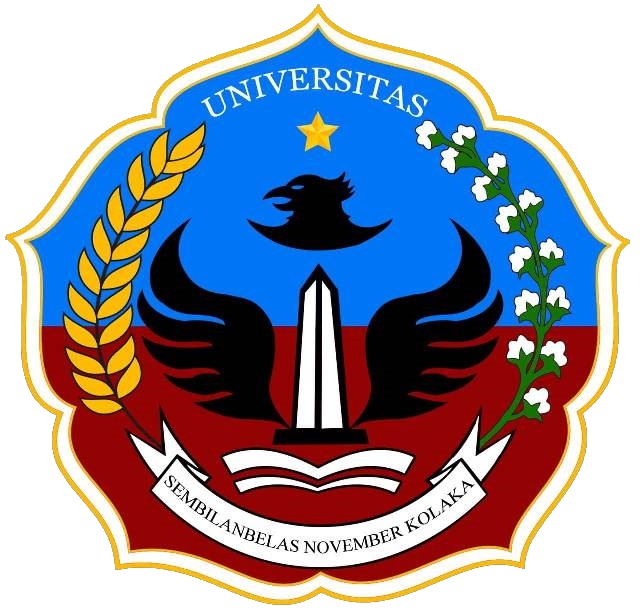Pengaruh Self-Efficacy Terhadap Hasil Belajar Matematika Melalui Media Pembelajaran Digital
DOI:
https://doi.org/10.71234/gjet.v1i1.35Keywords:
self-efficacy, hasil belajar, media pembelajaran digitalAbstract
This study seeks to examine the impact of self-efficacy on mathematics learning outcomes via digital learning media. This research utilized a quantitative method with a descriptive correlational design. The sample comprised 57 tenth-grade pupils chosen by a saturation sampling technique. Data were gathered using a self-efficacy questionnaire employing a 5-point Likert scale consisting of 16 items, along with a curriculum-based assessment of learning outcomes. Regression analysis indicated that self-efficacy significantly affected learning outcomes, with a p-value of 0.044 at a 95% confidence interval. The negative regression coefficient (B = -1.024) suggested that an enhancement in self-efficacy correlated with a decline in students' learning results. This implies that additional factors, such as digital literacy or learning methodologies, may influence the association. These findings underscore the need of a pedagogical approach that not only bolsters self-efficacy but also fosters digital media proficiency to attain optimal learning outcomes
References
[1] Z. W. Lestari, M. Saleh, J. Mujiyanto, and S. Yusuf, “Students’ Self Efficacy in Learning English: A Case Study at a Vocational High School,” vol. 443, no. Iset 2019, pp. 418–425, 2020, doi: 10.2991/assehr.k.200620.081.
[2] A. C. Kusuma and D. S. Mujiono, “Pengembangan Perangkat Pembelajaran Problem Based Learning dengan Pendekatan Saintifik untuk Melatihkan Keterampilan Berpikir Kritis Mahasiswa,” JRPM (Jurnal Rev. Pembelajaran Mat., vol. 4, no. 2, pp. 102–114, 2019, doi: 10.15642/jrpm.2019.4.2.102-114.
[3] H. Setiyawan, “Pemanfaatan Media Audio Visual dan Media Gambar Pada Siswa Kelas V,” J. Prakarsa Paedagog., vol. 3, no. 2, 2021, doi: 10.24176/jpp.v3i2.5874.
[4] M. Alafgani and E. Purwandari, “Self-efficacy, academic motivation, self-regulated learning and academic achievement,” J. Psikol. Pendidik. dan Konseling J. Kaji. Psikol. Pendidik. dan Bimbing. Konseling, vol. 5, no. 2, p. 104, 2019, doi: 10.26858/jppk.v5i2.10930.
[5] Nopriyeni, Irwandi, and Irdalisa, “INFLUENCE OF OUTDOOR LEARNING APPROACHES TO STUDENT’S BIOLOGY LEARNING RESULT Destriani,” Dharmas Educ. J., vol. 4, no. 2, pp. 2746–7732, 2023.
[6] S. Aldi, A. F. Dzulkarnain, and S. Marliyah, “The Influence of Science Process Skills-Based e-LKPD on Learning Outcomes , Learning Motivation , and Metacognitive Abilities of Class XI High School Students,” Bioeduscience, vol. 6, no. 3, pp. 304–313, 2022, doi: 10.22263/jbes/6310259.
[7] T. Supriandono, “The Effect of Team Games Tournaments Cooperative Learning Model on Student Learning Outcomes in Pancasila and Civic Education Learning,” JTP - J. Teknol. Pendidik., vol. 25, no. 2, pp. 223–233, 2023, doi: 10.21009/jtp.v25i2.35184.
[8] N. A. N. Azizah, R. Purwandari, and K. R. M. Nur, “The Relationship between Self-Efficacy and Academic Procrastination in the Undergraduate Nursing Student Program at the University of Jember,” J. Psikol. Teor. dan Terap., vol. 15, no. 01, pp. 1–15, 2024, doi: 10.26740/jptt.v15n01.p1-15.
[9] J. Y. Mega, “Empowering Health: Unveiling the Impact of Self-Efficacy and Lifestyle on Hypertension Management,” J. Curr. Heal. Sci., vol. 4, no. 1, pp. 9–16, 2024, doi: 10.47679/jchs.202460.
[10] Y. Prabowo and A. Yumna, “Self-Efficacy and Financial Literacy Influencing Employee Performance of West Sumatera Merchant Marine Polytechnic,” J. Manaj. Pelayanan Publik, vol. 7, no. 1, pp. 192–208, 2023, doi: 10.24198/jmpp.v7i1.48183.
[11] Y. Tarumasely, “The Effects of Flipped Classroom Model with Heutagogy and Self-Efficacy Approach to Higher-Order Thinking Skills,” Edcomtech J. Kaji. Teknol. Pendidik., vol. 7, no. 2, p. 144, 2022, doi: 10.17977/um039v7i22022p144.
[12] S. Amaliyah, S. Suryaningsih, and L. Yunita, “Gender Differences in the Relationship Between Anxiety, Self-Efficacy and Students Learning Outcomes on Chemistry Subject,” Edusains, vol. 13, no. 1, pp. 8–14, 2021, doi: 10.15408/es.v13i1.12991.
[13] Kartimi, I. R. Anugrah, and I. Addiin, “Systematic Literature Review : Science Self-Efficacy in Science Learning Tinjauan Pustaka Sistematis : Efikasi Diri dalam Pembelajaran Sains,” Al-Khwarizmi J. Pendidik. Mat. dan Ilmu Pengetah. Alam, vol. 9, no. 2, pp. 13–34, 2021, [Online]. Available: https://doi.org/10.1787/acd78851-en.
[14] I. A. P. W. Sugianingrat, I. I. D. A. Y. Wilyadewi, and I. W. G. Sarmawa, “Determination of Entrepreneurship Education, Family Environment, and Self-Efficacy on Entrepreneurship Interest,” J. Econ., vol. 16, no. 1, pp. 33–43, 2020, doi: 10.21831/economia.v16i1.30374.
Downloads
Published
Issue
Section
License
Copyright (c) 2024 GJET : Global Journal of Educational Technology

This work is licensed under a Creative Commons Attribution 4.0 International License.








